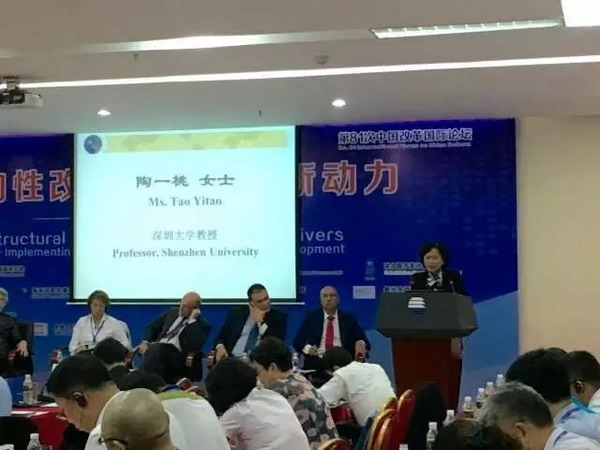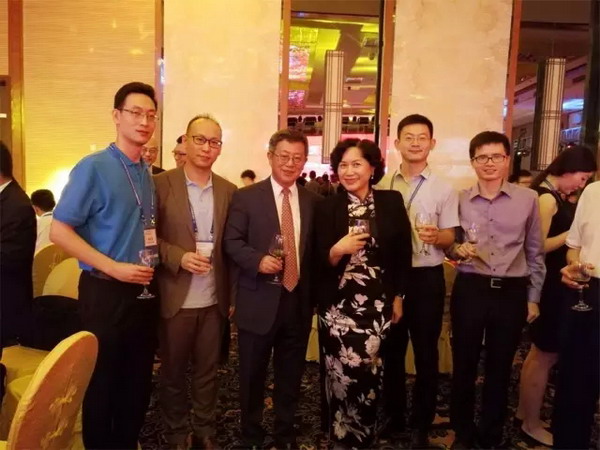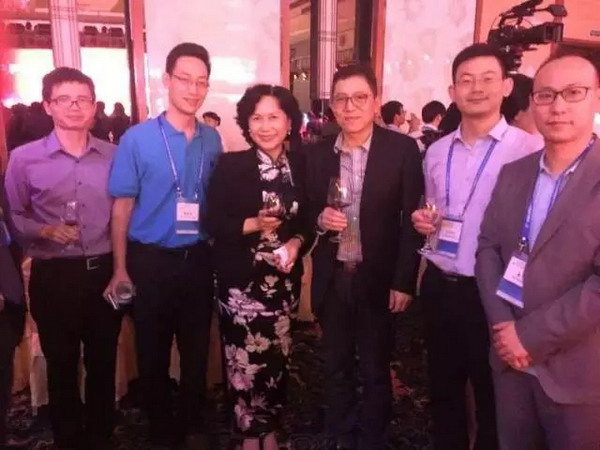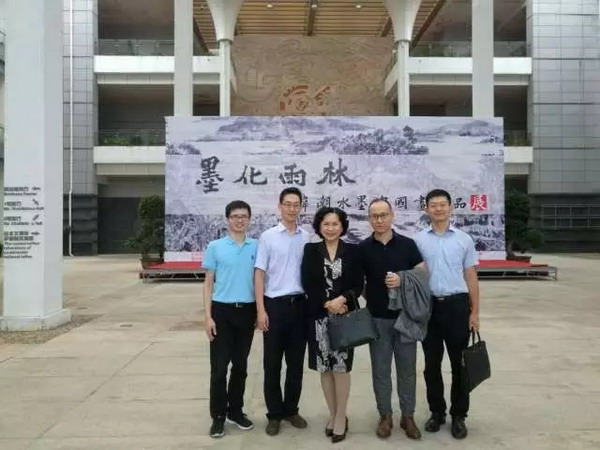On October 29, 2016, the 81st International Forum on China Reform and 2016 Emerging Economies Annual Thinktank Conference was held in Haikou city, Hainan province, cosponsored by the China Institute for Reform and Development (CIRD), the German International Cooperation (GIZ) and the United Nations Development Programme (UNDP). Prof. Tao Yitao, vice secretary of CPC Committee of Shenzhen University (SZU), secretary of the Discipline Inspection Commission of SZU and director of the China Center for Special Economic Zone Research (CCSEZR) ― a key research institute of humanities and social science of the Ministry of Education of China, attended the forum by invitation.
Prof. Tao Yitao delivered a keynote speech in the sub-forum of "Implementing the Belt and Road Initiative in Support of the 2030 Agenda for Sustainable Development: Role and Action" and had in-depth discussions and exchanges with renowned experts and scholars from authoritative institutions such as GIZ, UNDP and the Development Research Center of the State Council (DRC).
Prof. Tao Yitao delivers a keynote speech centering on the Belt and Road strategy.
Prof. Tao Yitao said that the implementation of the Belt and Road initiative, whether for China or countries along the Belt and Road route, was an issue whose salience rested in non-economic rather than economic domains which put more stress on culture and institution than capital and technology. Compared with constraints from capital and technology, those from institution and culture are the fundamental ones which are soft yet rigid. The reason is that it is the common rules and values that define a society and determine the choice behavior of the society or community and individuals in the society or community. An informal institution formed in the society or community constitutes an integral part of the institution and the culture. Therefore, building an inclusive and exercisable system with common institutional and cultural cognition across the institution-culture constraints should be a strategic and wise consideration which should be taken into account prior to the implementation of the Belt and Road initiative whether from the practical or the logical perspective.
Prof. Tao Yitao believed that the aforesaid institution-culture constraints were not simply institutional and cultural constraints but barriers in recognizing each other's institutional arrangements due to cultural differences like different customs and values, and the impact of such institutional arrangements with different cultural traits on consensus about institutional arrangement and development of institutional environment within a wider area or a community. All institutions have cultural traits and all cultures have institutional functions. To some extent, a culture is an institution and vice versa. Different nations create different cultures in different ways and the reverse is also true. The interplay of a nation and its culture determines and develops the rule-making and choice behavior of the nation or country.
Prof. Tao Yitao further pointed out that the institutional framework of a society must be based on evolving internal institutions which must also be the base of rules made consciously or passed by laws and the overall institutional framework determined by political processes. Although most internal institutions are informal, they are rigid, affect the formal institutional arrangements and play an important role in people's life in most circumstances. For example, as important internal institutions, customs, habits and values have such power and influence.
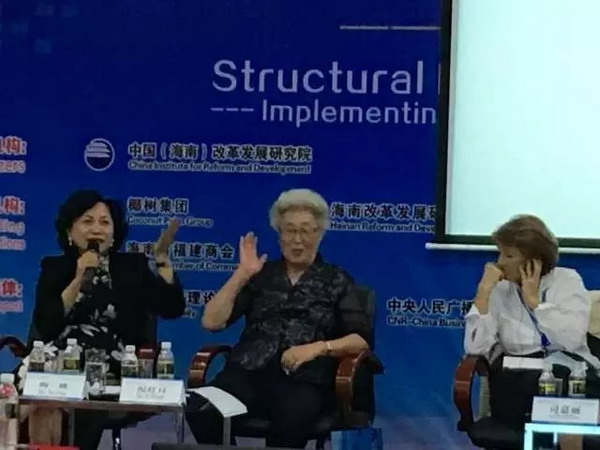
Prof. Tao Yitao exchanges ideas with renowned experts and scholars at home and abroad.
Prof. Tao Yitao put forward the following three significant viewpoints concerning the problems, challenges and imperative tasks arising during the implementation of the Belt and Road strategy.
Firstly, the biggest bottleneck in implementing the Belt and Road strategy is lack of relevant knowledge. Presently, an important and efficient source of help to get us out of the trouble is regional research scholars who are proficient in local languages and have received strict methodological training, performed field studies in the target country over a long period of time and gained extensive connections through years of tracking studies. The biggest constraint lies in poor knowledge about the cultural or internal institutions of countries along the Belt and Road route, including customs, habits, values and cultural beliefs. In other words, barriers in recognizing different internal institutions significantly impede the conclusion of formal institutional arrangements within a regional community. For example, the Myitsone Dam project in Myanmar is halted and construction of the China-Pakistan economic corridor is blocked.
Secondly, to transform our concept is important in implementing the Belt and Road strategy. Due to historical reasons, the central government has absolute authority and power and there is a strong command and obedience relationship between the central and local governments in China. China's experience of nearly 40 years in reform and opening up proves that the "whole nation" system is effective and successful, which boasts incomparable efficiency and advantages in pooling and leveraging scarce resources, mobilizing the public to participate in key construction projects in a fast manner and solving collective problems in a uniform and efficient fashion. However, we cannot deal with and implement the Belt and Road projects in a Chinese way based on such thinking habits, particularly large projects in direct contact with the interests of local inhabitants and even their cultural beliefs. We must act in accordance with laws and international common practices to guarantee efficiency and interests and must not seek quick success and instant benefits in order to reach mutual consensus with patience and achieve a win-win situation with mutual understanding. This is the rational way we should adopt to deal with the Belt and Road projects.
Lastly, to build mutual trust is the most urgent task in implementation of the Belt and Road strategy. Mutual trust between countries can be built by recognition of the culture and values of each other. Mutual recognition of culture and values is not simply convergence or rejection between two cultures but a process to achieve win-win outcomes with mutual respect, to develop with mutual tolerance and to seek common improvements by learning from an advanced culture. In essence, nothing will be more favorable for the cultivation of mutual trust between countries than mutual understanding and emotional connections.
At the closing ceremony, Prof. Tao Yitao presented the CIRD with a painting named "Pengcheng Wanli" (a connotation of bright future) to celebrate its 25th anniversary on behalf of SZU and CCSEZR ― a key research institute of humanities and social science of the Ministry of Education of China.
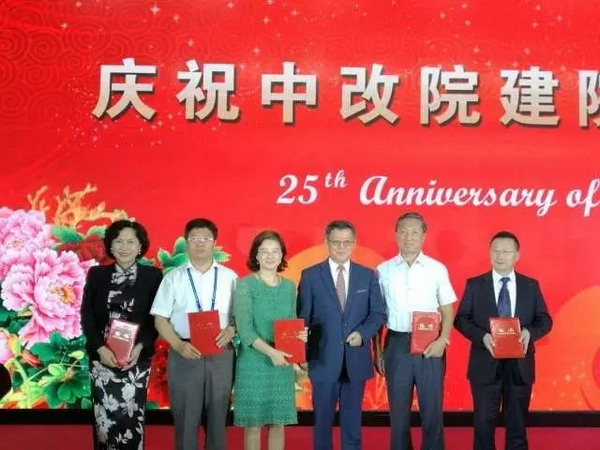
Prof. Tao Yitao presents a painting named "Pengcheng Wanli" (a connotation of bright future) to celebrate the 25th anniversary of CIRD.
Prof. Tao Yitao and Mr. Chi Fulin, president of CIRD (third from left)
Prof. Tao Yitao and Mr. Lv Ningsi, a famous anchorman from Phoenix Satellite Television (fourth from left)
After the forum, Prof. Tao Yitao and her party from SZU visited the historical museum of Hainan Special Economic Zone and had in-depth discussions on the historical reasons for differences in the development of special economic zones and their enlightening significance to China's SEZ development and the course of reform and opening up.
Prof. Tao Yitao and her party from SZU visit the historical museum of Hainan Special Economic Zone.
